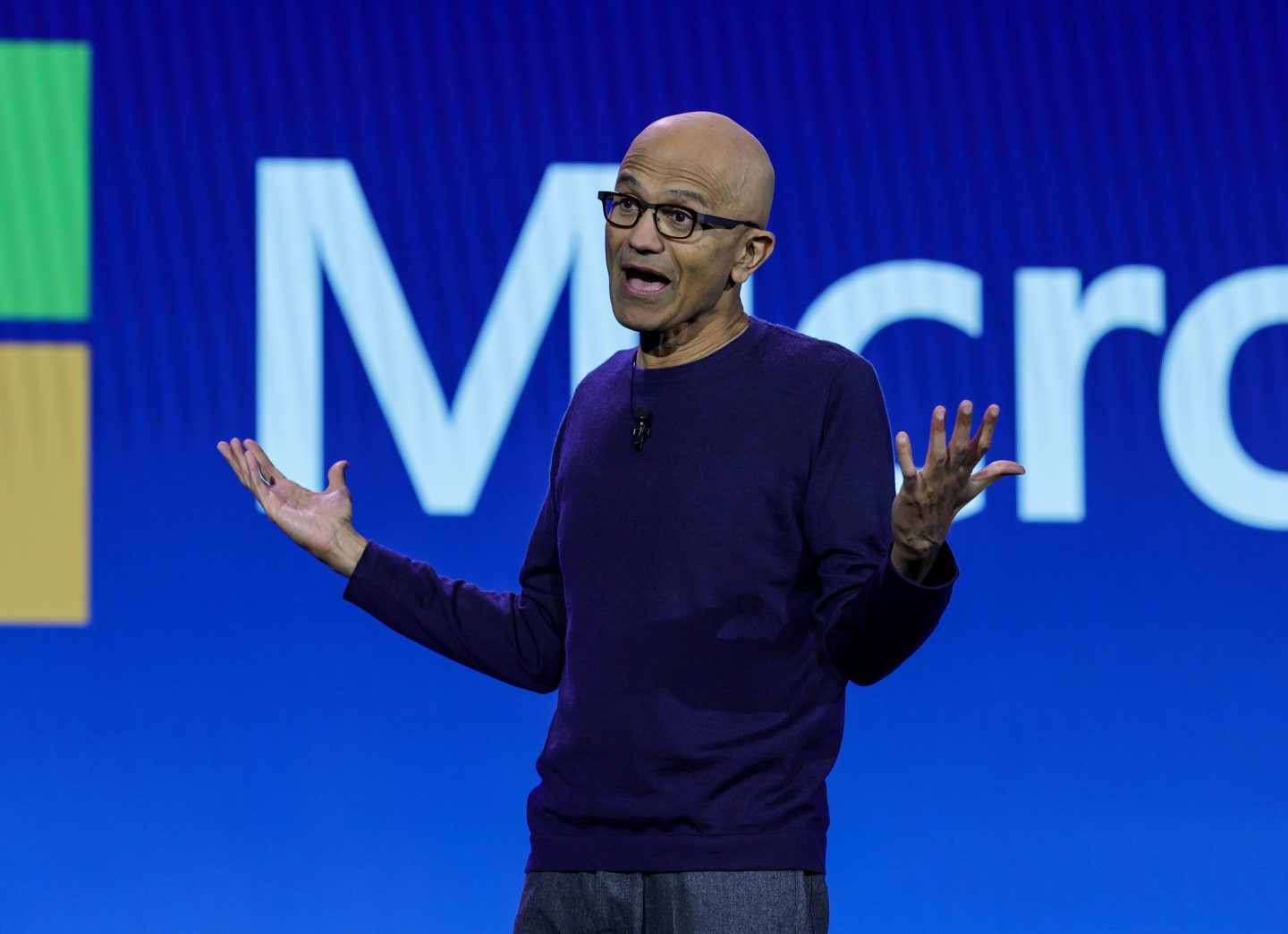Good morning! Lily Mae Lazarus here, filling in for Ruth. Appointing the right CEO requires a clear, forward-looking understanding of the kind of leadership needed to guide a company into its next chapter. But identifying high-potential talent isn’t always straightforward—as even Microsoft founder Bill Gates has admitted.
Gates recently revealed that Satya Nadella was nearly passed over for the top job at Microsoft largely because his defining traits, like empathy and humor, stood in stark contrast to the company’s historically cutthroat culture. Nadella ultimately secured the role and has since led the tech giant to new heights, with Microsoft becoming the second company in history to reach $3 trillion in market valuation in January 2024, up from an approximately $311 billion valuation when he assumed the corner office in February 2014. Still, Gates’ near miss highlights just how easily transformative leaders can be overlooked in favor of familiarity.
Microsoft did not respond to a Fortune request for comment.
According to Eric Frazer, a behavioral psychologist who studies the traits that shape high-impact leaders, companies should prioritize a mix of emotional intelligence, management capabilities, and technical acumen when evaluating CEO candidates.
“What really distinguishes the top percentile of leaders, CEOs, and, broadly speaking, top talent is that they have a proven track record that exemplifies a consortium of many of these proven emotional intelligence and leadership skills, including active listening, visionary thinking, integrity, sound decision-making, mindfulness, and grit,” he says.
But one trait stands above the rest: self-awareness. “All successful leaders know that they are coming to the table with a set of strengths and weaknesses and that they are relying upon other successful leaders in the organization to fill up those gaps or to augment those talents,” says Frazer.
So, how do companies spot these high-potential leaders? Frazer recommends grounding the search in data: track the attributes that have historically driven success within the organization and gather feedback from those who have worked closely with potential candidates. “The best predictor of future behavior is past behavior,” he says.
But Frazer warns that one of the biggest pitfalls in succession planning is sticking to conventional, outdated CEO archetypes. In Microsoft’s case, Nadella’s softer leadership approach didn’t fit the company’s legacy mold and almost cost them a transformational CEO. Frazer adds that companies often default to what’s comfortable, and the discomfort of change can be a real barrier.
That’s why he urges executive search committees to ask themselves a hard question: Are we resisting this candidate because they’re wrong for the role—or because they challenge our assumptions of what a leader should look like?
Being honest about that, Frazer says, opens the door to greater “cognitive flexibility” and a more accurate sense of what the company truly needs, not just what feels familiar. Different isn’t inherently better or worse, Frazer says. It’s simply different—and sometimes, that’s exactly what’s required.
Lily Mae Lazarus
lily.lazarus@fortune.com
Smarter in seconds
Game time. Nike CEO Elliott Hill said Ohio Buckeyes coach Ryan Day revealed the key to a strong offense
Commanding officer. CEOs face more accountability when a board member has military experience
Leadership lesson
Glenn Fogel, CEO of Booking Holdings, on deciding whether the corner office is right for you:
“Make sure you understand why you want it. Really understand what’s driving you. For whatever you want, and whatever it is, just be conscious. Understand what is going to make you happy and what you want to be.”
News to know
23andMe filed for bankruptcy and announced CEO Anne Wojcicki’s resignation on Sunday, marking another major setback for the struggling DNA-testing company. FT
Brian Johnson, the tech entrepreneur trying to live forever, reportedly used confidentiality agreements to exert control over those in his orbit. Now, those people are pushing back. NYT
JPMorgan Chase has rebranded its diversity, equity, and inclusion program to diversity, opportunity, and inclusion amid mounting political pressure from the Trump administration. Bloomberg
President Donald Trump’s tariff agenda has hit more than 30 countries and shows no signs of slowing, with sweeping reciprocal tariffs expected in April. WSJ












